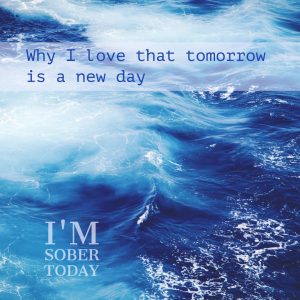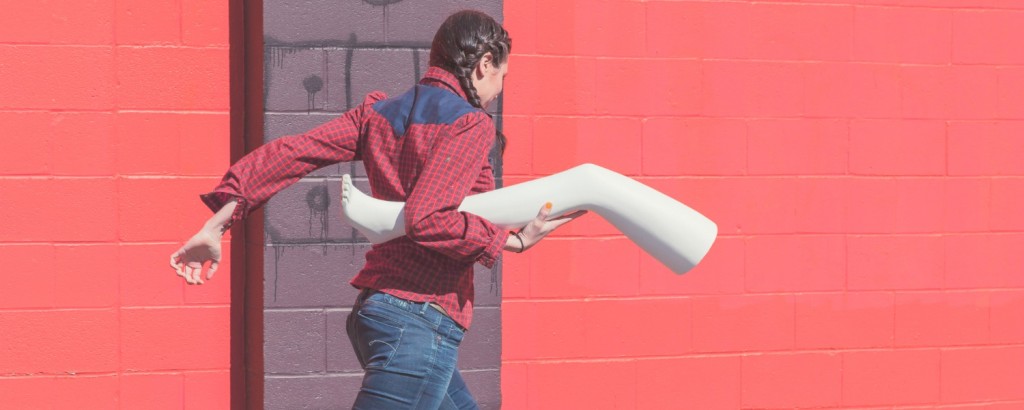This year I have had some excellent Addiction Articles from a variety of writers. Here are my top three favorites.
(1) The hardest first step is asking for help

As the end of this year is approaching, so is my first year of sobriety. I would like to take some time and reflect on my own struggles to ask for help. It has been one of the hardest things I’ve ever had to do.
My inability to seek help has truly complicated the road to freeing myself from all the hardships that addiction has created in my life. It is quietly ironic and fascinating at the same time that even though I was on the verge of poisoning myself to death, I still didn’t have the guts to be bold and ask for help. The only time I tried to find help was when I was drunk. Unfortunately, I have a hard time opening up. I am a private person, I enjoy being in my head, and I hate to say it but I guess I am a loner. There is nothing better than quiet, well at least for me anyways.
If you are anything like me, asking for help might be one of the hardest things that you will ever do/ or have done in your recovery. Here are some reasons that prevented me from taking that crucial step.
I felt so insane
The title says it all. Addiction made me feel insane. I had completely closed myself off to the point where I was only allowed to do 3 things: go to work, drink, and watch movies or play video games. I lived this way for years. Same pattern, day after day. It was a miracle if I would even come out from my room into the living room. Alcohol completely blocked all my senses so that even if I did have any human interactions at work, I didn’t feel anything. I was too focused on trying to manage my hangover and hide my addiction.
 One thing about any addiction is that it is so sneaky. My mind was still set on the moment of the first drink ever, on how good and relaxing it is. I was blind to reality and how my drinking had hijacked all of my psyches.
Therefore I was so confused about these insane feelings that I had. Now I realize that it was simply the side effects of abusing alcohol. I kept on abusing it to the point where I forgot that hangover is not a normal state.
One thing about any addiction is that it is so sneaky. My mind was still set on the moment of the first drink ever, on how good and relaxing it is. I was blind to reality and how my drinking had hijacked all of my psyches.
Therefore I was so confused about these insane feelings that I had. Now I realize that it was simply the side effects of abusing alcohol. I kept on abusing it to the point where I forgot that hangover is not a normal state.
Stigma is a killer
I was deeply ashamed, to the point where I felt I would rather destroy myself than ask for help. Again, not so bold. What I am currently learning in my sobriety is how to stand up for myself. I used to be a floor mat, mostly because I just didn’t care. Playing the victim is always easier, but not advisable. There are just not enough heroes out there per victim. No doubt that shame is hard to face. I am still facing it. Luckily, recovery can be a personal thing; no one needs to know, but I find it ironic how addiction is seen in our society. As long as you can manage it, you are alright, but as soon as you take the hard step towards ending it, you are automatically seen as weak, immoral and different. How unfortunate! Being sober is the biggest personal edge ever. Using the same method I was able to quit coffee, soda, and energy drinks. I’m almost like, thank you stigma! Once I got over it and stopped caring what others thought about me, I was finally able to start taking charge of my life, finally…
This one is a nightmare for introverted people
Opening up. I still have a very hard time doing that. It was even harder at the beginning when my drinking was at its finest. I had things that I wanted to vocalize for 10+ years but just never had the guts. I can say that taking this risk has helped me to understand myself even better. Sometimes I just have to ignore all the nervousness and go for it. Recovery will make you talk, and people who dedicate themselves to becoming professional addiction counselors are very good at it.
It will be nothing like when my drinking was at its finest. I had things that I wanted to vocalize for 10+ years but just never had the guts. I can say that taking this risk has helped me to understand myself even better. Sometimes I just have to ignore all the nervousness and go for it. Recovery will make you talk, and people who dedicate themselves to becoming professional addiction counselors are very good at it. It will be nothing like the awkward conversation with a stranger, I guarantee it!
How about you?
What’s holding you back?
About the author
If you would like to get to know me visit my alcohol recovery blog.
Comment from Victoria b.
I am proud to introduce you to this Blog. I encourage you to check it out. There are so many insightful gems of emotions, displayed in the writing. I particularly like:
My goals
- Staying sober;
- Rebuilding my energy back;
- Self-development;
- Becoming self-employed;
- Eventually going back to school and finishing associates in small business administration (for starters)
[divider_flat]
(2) Sobriety Trends -Holistic Living in Recovery
There was a time not that long ago, that when you entered into a room of Alcoholics Anonymous or Narcotics Anonymous you’d be met with a giant cloud of smoke. The smoke would hang in the air appearing to cause its own weather system as people frantically reached for their pack to light up another one.
This was indicative of the time and for a long period of the 12 Steps’ existence physicians and other medical personnel condoned smoking as a great way to alleviate stress. But this is no longer the case and with the increased knowledge we have today pertaining to medical matters, and the link between the mind and body, recovery has become an all-encompassing affair.

Gone are the days when to just focus on the spiritual nature of the disease was enough, often the requirement to start life again based on rock bottom being the beautiful place to start. For many years the prevailing belief was that one had to hit a low bottom in order to start over. Today that is not necessarily the case. Just like people today choose to take a more holistic approach to recovery, one where they ensure the care of their mind, body, and spirit. That is also the case with when to start the process of recovery. Today more and more people seeing prevention and education as key tools as well as early intervention.
You can see this new trend in the growing number of treatment centers that offer holistic programs to their clients. Whereas acupuncture, yoga, massage therapy, and exercise were not the norm just 10 years ago, many treatment centers today now offer them as a common part of their treatment structure.
This trend toward holistic recovery has been the case for me and a large part of my recovery is centered on making sure that I am experiencing total health—meaning that I am mentally, physically, and spiritually fit.
It is not enough that I have embarked upon a spiritual way of life, but I also want to make sure that the rest of my health is taken care of as well. I don’t want to wind up in a position where I am 10 years sober and feel the presence of God in my daily life but am suffering from hypertension and other medical issues because I neglected my body for so many years.
Going along with this belief of mine is the fact that I do not believe that a person can truly experience all of the benefits that recovery has to offer if they do not also take care of their mind and body. They only get 1/3 of what recovery has to offer and for a person like myself, this is just not enough.
So what sort of things do I partake in, in order to holistically live in recovery? First and foremost I exercise and have a yoga practice. Yoga has become a huge part of my life and the benefits that I reap from doing yoga are innumerable. For one I have always found it difficult to be still and quiet my thoughts, but yoga has allowed me to do so. Through the act of stretching, posing, and watching my breath, I am able to reduce my thoughts down a manageable level. I always feel more relaxed and an overall feeling of well-being once I am done with yoga.

I also have a dietary plan that I follow. This is partially because I also have an eating disorder, so I have to stick to a schedule of eating and watch the things that I put in my body, but I’d like to think that even if I didn’t I would still watch what I ate.
Your diet plays a surprisingly large role in your mental well being and so if you are constantly eating fast food and junk, then not only will you have a lot less energy but also your thinking can become clouded and you can experience depression. So eating healthy promotes overall wellness and also allows you to not have to experience certain health concerns later on down the road.
Another thing that I do in order to promote holistic living in my life is that I go to a therapist. To some people psychotherapy and holistic may not seem to go into the same category, but holistic living is simply ensuring that all assets of your being are taken care.
I have found therapy to be incredibly important in my recovery and this is because the 12 Steps are not a catch-all for every problem. Yes, I understand that in the end seeking God and trusting him is the answer, but for some of the life’s problems, just going to meetings and praying does not seem to be enough. After all did God not put therapists on this planet for a reason? I believe so, so we might as well make use of them.
Going to therapy has allowed me to face and overcome obstacles that I am not sure I could have dealt with any other way and because of this my mental well being has definitely improved. I even have my children involved in therapy so that they can begin to deal with some of the ramifications of my alcoholism now, and not be so affected by them later on in life.
All of these actions that I take are so that I can place myself in a position where spiritual growth is most attainable and my recovery is maintained on a day-to-day basis. I make sure that I pray daily, do some sort of physical activity, eat healthily, and keep up with my therapist. Doing these things have greatly improved the quality of my life and recovery and by just implementing some sort of practice for the mind, body, and spirit your life can improve as well.

Rose Lockinger is a passionate member of the recovery community. A rebel who found her cause, she uses blogging and social media to raise the awareness about the disease of addiction. She has visited all over North and South America. Single mom to two beautiful children she has learned parenting is without a doubt the most rewarding job in the world. Currently the Outreach Director at Stodzy Internet Marketing.
You can find me on LinkedIn, Facebook, & Instagram
(3) 5 Tips to Prepare Yourself for College in Recovery
More and more often an education is required to secure a job; many companies see a college degree as a sign of initiative and good follow through skills.
If you’re diligent you can prepare yourself for the challenges of college while keeping your recovery program intact.
Most addiction starts in late adolescence, so setting and achieving goals may be totally foreign to you. Since recovery from substance abuse is about learning how to change the way you think, and how you face unexpected life situations, college is an exceptional way to practice the tools you’ve learned in sobriety.
Heading off to college can be exciting and intimidating and most students experience some form of anxiety. Anxiety and overwhelming emotions can be a trigger for those in recovery, but with a little work you can prepare yourself for your new adventure.
Before you start to freak out, put a plan together and take your future into your own hands.
- Research School. Do your research. Find out if the schools you’re interested in offer any resources for substance abuse recovery or mental health disorders. Many schools today offer programs for students recovering from addiction. The Association of Recovery in Higher Education (ARHE) offers plenty of information on different schools, and the programs they have available.
- Be Prepared for Triggers. Make sure you have a relapse prevention plan in place and a solid foundation for your recovery. Find out what 12 step meetings are in the area and bring a phone list in case you need to reach out to someone. Be proactive and make talk to your school counselor; they’re there to assist you and may have some additional resources to offer. Know your relapse triggers and be prepared for them.

Have a plan before you go. There are lots of resources to help.
- Create a Daily or Weekly Schedule. Make sure you know what you’ll be doing every day when you’re not in class. One of the most dangerous things for someone in recovery is boredom. Throw in a major life change and it could quickly trigger a relapse if you don’t think ahead. When you’re not in class, schedule your meetings, and any other appointments you have. Create a list of activities you enjoy; you can refer to this list if you find yourself feeling lonely or uncomfortable.
- Stay Focused on Your Goals. College is a fun and exciting experience, but don’t forget why you’re there. Make a point to create a healthy balance between class and your personal life. This is a skill you’ll use throughout your adult life. If you let your school slip, you may find yourself having anxiety over failing classes. Learn to maintain that balance and avoid the added stress of having to get caught back up on school work.
- Have Fun and Avoid Unattainable Expectations. Being in recovery at college doesn’t mean you can’t have fun. Enjoy sober activities and find people with similar interests. Also, no one is perfect and you’re not going to kill it in every class. As long as you’re truly doing your best success is inevitable. Remember, life is a marathon, not a race. Don’t compare yourself to others and end up letting yourself down because you can’t keep up.
As is Life; Recovery is an Education without a Graduation.
While pursuing a college education in recovery offers its own unique set of challenges, with a little preparation you can accomplish your goals.
About Jose Hernandez, CDAC
For nine years Jose has worked one-on-one with individuals as a sober companion and with groups as a resident counselor at addiction treatment centers and is certified by the California Association of Alcoholism and Drug Abuse Counselors (CAADAC) to practice as a substance abuse counselor. Through his professional experiences in crisis intervention, drug and alcohol detoxification, substance abuse counseling, and relapse prevention, Jose has developed a unique plan for case management that bridges the gap between a person’s painful past of substance abuse and a future of sobriety. Contact Jose at http://launchcenters.com/
